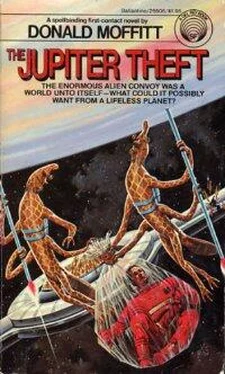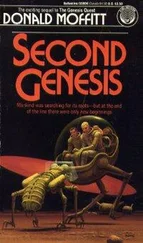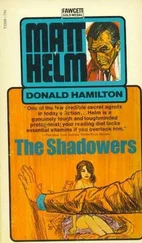Dmitri sucked in his breath. “A race spending its entire history with the foreknowledge of doom—first as myth, then as certain knowledge.”
Jameson squeezed Maggie’s hand for comfort. It was no wonder that the Cygnans had no empathy left over for other life forms.
Out of a babble of voices, someone asked: “The black hole swallows the supergiant, is that it?”
“No,” Ruiz said. “It’s the other way around—at first. And they hadn’t got to be a black hole and a blue supergiant yet. You start with two ordinary, healthy stars. But they’re big. That’s important. One is about twenty solar masses, the other about six.”
He sketched two circles in the air. Such was the force of Ruiz’s personality that Jameson could imagine that he saw them hanging there.
“They’re in a close binary system. Very close. They circle each other in only four and a half days. There’s a gas giant farther out, in their common ecosphere.” He sketched another imaginary circle. “It’s many times bigger than Jupiter, but not quite big enough to have been kindled into a star. It’s got its own family of satellites. One of them’s the Cygnan home world. It’s about the size of Mercury.”
“The smaller of the two bodies now in orbit around Jupiter!” Maggie said brightly.
Ruiz gave her a hooded look. “It’s very likely,” he said. “They had to kill their world to escape a murderous sun. I wouldn’t be surprised if they had a sentimental attachment to the coffin.”
“Wait a minute,” Mike Berry objected. “The Cygnans boosted at one gravity. Doesn’t that imply that they evolved on an Earth-size planet?”
Unexpectedly, it was Dmitri who came to Ruiz’s rescue. “Takes only a year to boost up or down from light speed at one g,” he pointed out. “The Cygnans could take that easily, with their body structure—six legs, low profile, no rigid bones. Besides, they’re spinning this ship at one third g now.”
Ruiz inclined his head in acknowledgment.
“You were telling us about the timetable for the evolution of an X-ray binary system,” Jameson prompted.
“Just so,” Ruiz said. “All right. We start with two healthy stars. Big stars burn out quicker. Right? So the twenty-sol star uses up its hydrogen first. It becomes a supergiant, hundreds of times larger than our own Sun. It’s a helium star now…”
“Without wiping out all life in the system, Cygnans included?” Gifford said incredulously.
“It’s part of a close binary system,” Ruiz said. “It can only expand to the limits of its Roche lobe.”
“That’s why the big star looked pear-shaped!” Jameson said.
“Correct, Commander. When the star overflows its Roche lobe, the surplus mass is transferred to the companion star. The mass exchange takes only about twenty thousand years. Perhaps less. When it’s finished, the twenty-sol star is down to less than six solar masses. The six-sol star has grown to somewhat more than twenty. It adds up to about the same.”
“So their joint ecosphere isn’t affected,” Dmitri put in. “The Cygnans survive.”
“They survive, yes,” Ruiz said. “But they’d have had a difficult twenty thousand years. Helium stars burn hot. The Cygnans must already have started thinking about moving from the neighborhood. They knew that worse was to come.”
“The supernova?”
“Yes. The star that ate its companion’s mass is in good shape. It has a new lease on life. It can burn its stolen hydrogen for another six million years. But the other star is doomed. It can burn its helium only for about half a million years. Then the carbon core explodes.”
“So the Cygnans had half a million years’ warning?” Mike Berry said.
“That’s right. But evidently they didn’t wait around that long. It’s not very healthy to be in the vicinity of a supernova. From what Commander Jameson observed, it looks as if the Cygnans mobilized their society and got out within the first few thousand years.”
Dmitri was trembling with excitement. “But Jameson saw the supernova explosion! The Cygnans left a few thousand years after the mass exchange, then kept a watch on the stars they’d left.”
“Correct, Mr. Galkin.” Ruiz looked as if he was enjoying himself.
“But—but that means that the Cygnans have been evolving in an artificial environment for half a million years! ”
There was a rush of excited voices. Ruiz waited it out. He held up a hand, and the noise died down.
“It took longer than that,” Ruiz said. “The Cygnans have been traveling for six million years.”
There was a commotion within the crowd, and Tu Jue-chen came pushing her way through. They parted to make way for her, the Americans with somewhat more alacrity than the Chinese. She stood panting on the step below Ruiz and the ship’s officers, shaking a liver-spotted fist at him.
“You are lie!” she shrilled. “You are lie!”
Beside Jameson, Maggie whispered, “What’s this all about?”
“I don’t know,” Jameson said. “She’s got some ideological bee in her bonnet.”
Ruiz’s expression was absolutely correct. “Why do you say that, Comrade Tu?” he said.
She showed her horse’s teeth. “Because,” she said triumphantly, “after six million years they would be socialists!”
Ruiz appeared to ponder the matter. “How do you know they’re not?” he said finally.
“No!” she spat. “They are degenerate society!”
“I should think so,” Ruiz said, “after six million years in their circumstances.”
“Six million years is impossible!” Tu insisted.
Maggie nudged Jameson. “I don’t follow her logic. Either they’ve been around long enough to become degenerate, or they’ve been around long enough to be socialists.”
“Don’t bother about the logic, Maggie,” Jameson said. “It’s just her way of getting across to the troops that the Cygnans are no longer their socialist buddies from the stars. We’re having a change of line.
“But why?”
“Comrades don’t lock the chosen up in a cage. They can’t communicate with the Cygnans, and they know it now.” He frowned. “I wonder if they’re planning some kind of action.”
“They are not travel for six million years,” Tu was screaming. “You tell them, Comrade Chu!”
The Chinese astronomer had been standing off to one side, going over figures on the lightpad with Maybury. He stirred uneasily and said: “You see, Comrade Tu, the interval of time—”
“Tell them, tell them!”
Dr. Chu looked unhappy. “Of course there is always the possibility of error in Dr. Ruiz’s computations, bu—”
Unexpectedly, Captain Hsieh broke in. His round face was stern, his short stocky body stretched to full height. “We must listen to Dr. Ruiz,” he said. “He has learned an important thing about the hsing-ch’ung. ” The word he’d chosen meant, literally, “star-worms.” “We must try to understand, so that we may act correctly.”
“What’s happening?” Maggie whispered.
Jameson said, “There’s some kind of shift in power going on. We’re a long way from New Peking. I think Captain Hsieh and his supporters have decided they’re never going to see it again.”
People’s Deputy Commander Yao Hu-fang spoke out from the crowd. “Go ahead, Dr. Ruiz. We would like to hear you.”
Ruiz nodded at him. He waited until the tumult died down. Tu Jue-chen wormed her way through the milling crowd and went off to sulk.
“Comrade Tu is right, in a sense,” Ruiz said, watching her go. “The Cygnans haven’t been traveling six million years. They left six million years ago.”
Читать дальше












